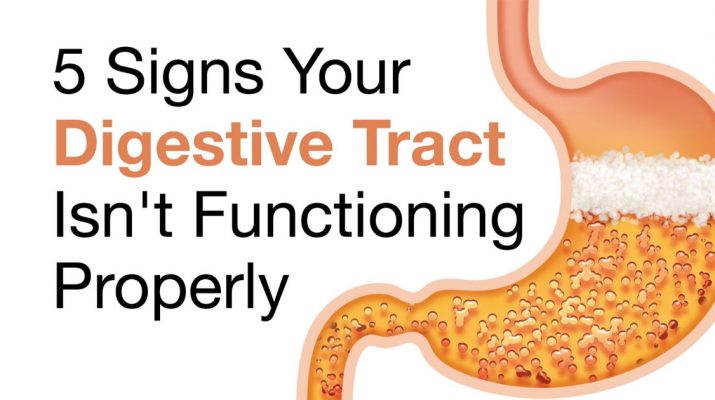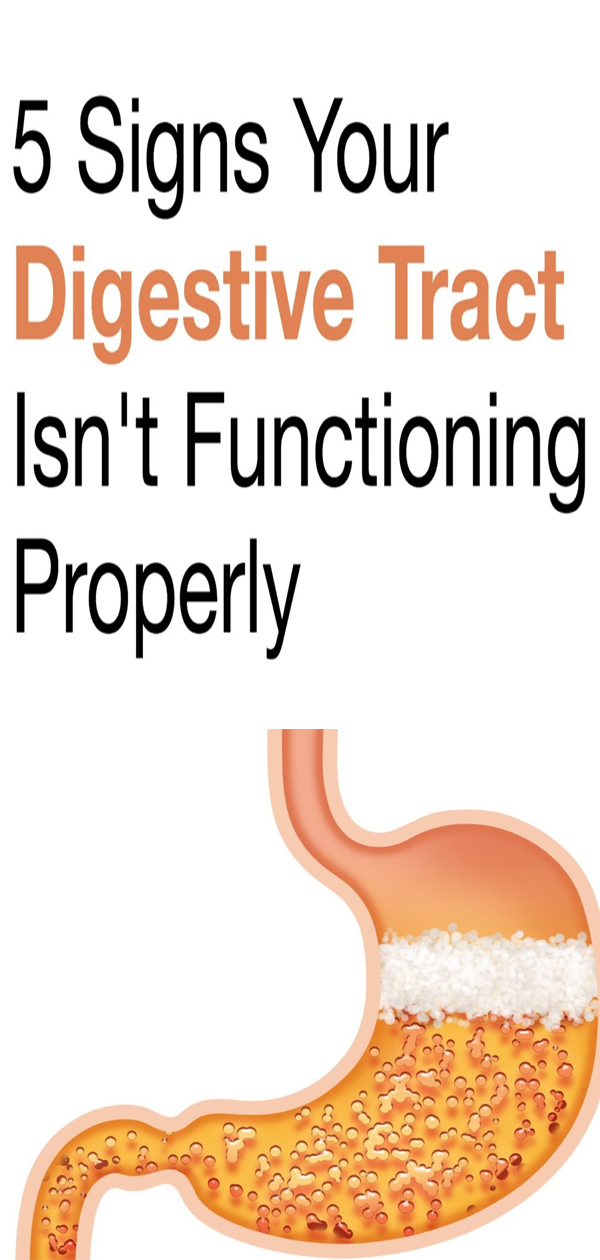Your digestive system is a complex and wide-ranging part of the body, ranging from the mouth all the way to the rectum. The digestive system is responsible for getting rid of waste and helping your body absorb vital nutrients.
Given the varied nature of digestion problem symptoms, it is entirely possible to mistake “minor” problems with those that require expedient treatment.
Well, lucky for you (we think!), we’re here to help clear the air.
So without further ado…
Here Are Five Signs That Your Digestive System Isn’t Functioning Correctly – And How To Fix It!
1. Gerd
Heartburn is a sporadic problem for many (most?) adults. What happens is that the esophagus becomes backed up with stomach acid, causing chest pain and the notorious burning sensation.
Ongoing (chronic) heartburn may indicate a condition called gastroesophageal reflux disease, or GERD. GERD can interfere with daily life and potentially damage the esophagus.
Symptoms of GERD are:
– chest discomfort
– difficulty swallowing
– dry cough
– “sour mouth” taste
– sore throat
How To Fix: GERD is a medical condition that requires an examination, diagnosis, and potential treatment. Many of the symptoms may be eliminated, however, by modifying food intake, eating at a slower pace, or cutting back on – perhaps even eliminating – fatty and spicy foods.
2. IBD
Our apologies for all of the acronyms! IBD, otherwise called inflammatory bowel disease, is a chronic swelling of the digestive tract.
IBD is composed of two types; Chron’s disease and ulcerative colitis. Symptoms of Chron’s include abdominal pain, diarrhea, fever, and weight loss. Ulcerative colitis symptoms include those of Chron’s but may also include bloody stools, malnutrition, and rectal pain.
If you experience some of the above-mentioned symptoms on a regular basis, it’s necessary to visit a doctor to get an appropriate diagnosis. Even if you don’t “check all the boxes” of IBD, your doctor can – at the very least – work towards making you more comfortable.
How To Fix: IBD is a chronic medical condition that requires medical intervention. However, many symptoms can be relieved by cutting back on refined carbohydrates (sugars); eating a high-complex-carbohydrate, high-fiber diet; increasing intake of omega-3 oils, and eating more protein.
3. Chronic Constipation
Chronic (long-term) constipation is a frequent complaint of someone suffering from digestive tract problems. Often, ongoing constipation causes symptoms like abdominal pain, bloating, and less regular bowel movements. In many cases, bowel movements – when they do occur – are more painful than usual.
According to physicians, chronic constipation is one of the most frequently-reported medical problems in developed countries.
How to Fix: Incorporate more fiber into your diet; ensure that you drink 6-8 glasses of water daily; exercise for at least 30-45 minutes every day.
4. Food Intolerance
If your body seems to act weirdly after eating certain foods, your gut may indeed be intolerant of what you’re putting in your stomach. Celiac disease – an autoimmune disorder – is one type of food intolerance. It causes digestive problems when you eat gluten, a protein found in barley, rye, and wheat.
Symptoms of food intolerance include:
– abdominal cramps
– bloating
– diarrhea
– headache
– heartburn
– irritability
– gas
– vomiting
How to Fix: Food intolerance is generally diagnosed by using a food diary. Recording what you eat and when can help you identify which foods are triggering your symptoms. After discovering a potential intolerance, it may be beneficial to visit a doctor to rule out a possible food allergy.
5. Other Serious Signs
A physician that specializes in diseases of the digestive system (gastroenterologist) can more definitively eliminate the possibilities of a serious gastrointestinal condition or disease. Scheduling an office appointment with a gastroenterologist may be in order if you experience any of the following:
– bloody stools
– frequent vomiting (sometimes daily)
– incessant sweating
– severe abdominal cramps
– sudden weight loss
Potential conditions of the symptoms mentioned above include gallstones, hepatitis, infection, or internal bleeding.
How to Fix: Clearly, serious symptoms like bloody stools, constant abdominal cramps, and sudden weight loss require immediate medical attention. Only a board-certified physician can properly address severe symptoms.
For the rest of us…
You may be able to overcome digestion problems with lifestyle changes – maybe a one-time doctor visit. Certain diseases of the digestive system might be long-term, but some medications and natural supplements can help alleviate many of the symptoms we mention in this article.


